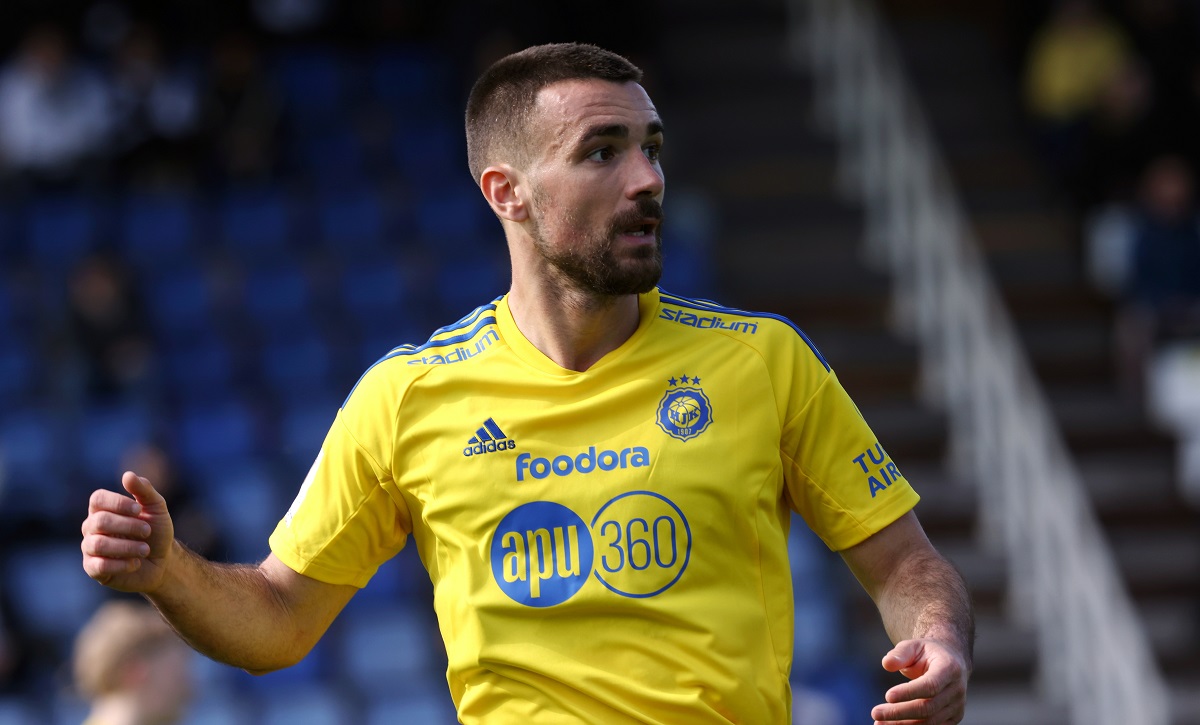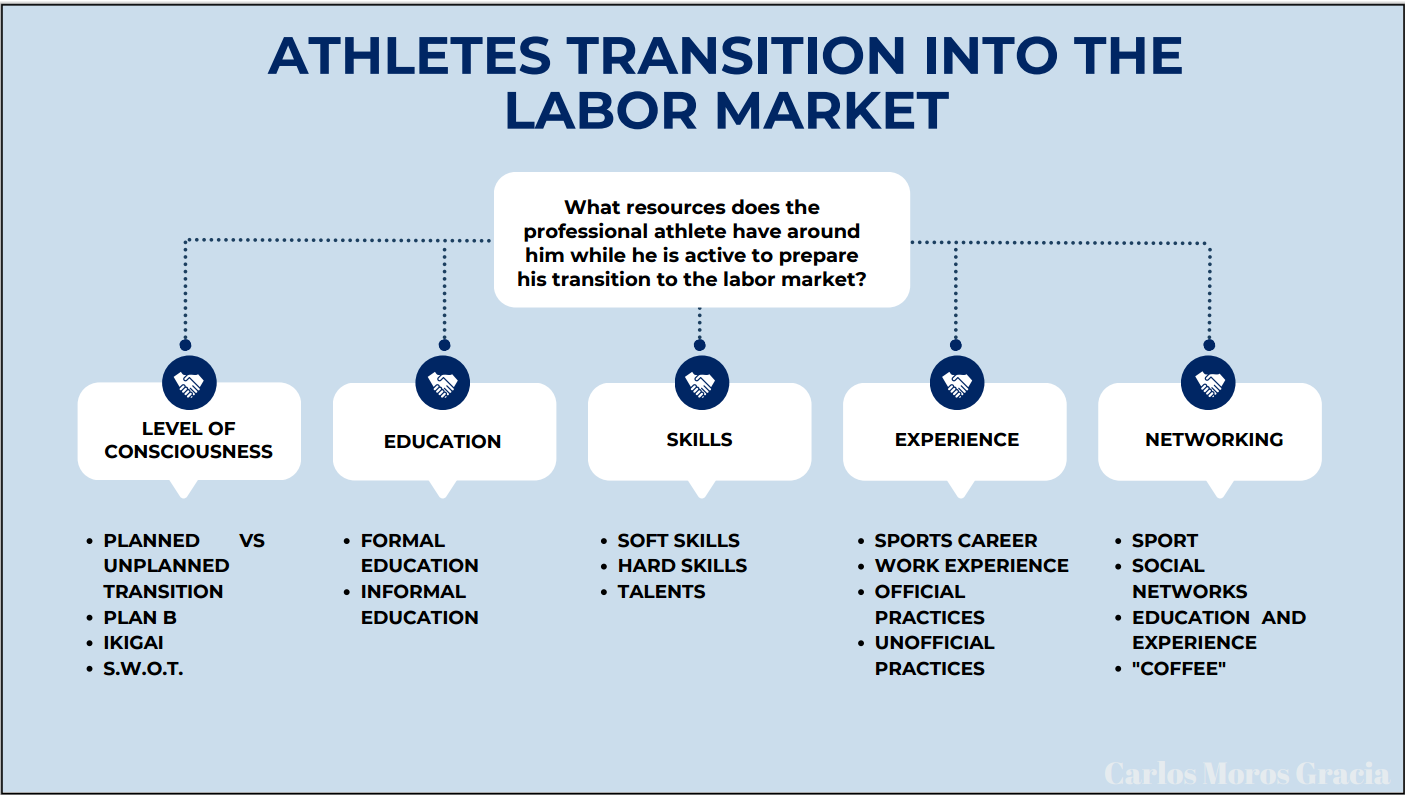Carlos Moros Gracia: Athletes transition into the labor market
My main point is that we have a fantastic opportunity to get prepared for the future, not only with education but many other different spheres, while we are still playing football (or any other sport), writes Carlos Moros who is doing his dissertation on the subject "Athletes transition into the labor market".

Carlos Moros played in HJK in season 2024.
ATHELETS TRANSITION INTO THE LABOR MARKET
I have chosen this topic for my dissertation, because it is a combination of different points in which I have a huge interest. I have been making a dual career (sports career + education) since I became professional footballer. Education has been always relevant for me and gave me the chance to learn new competences and to get to know new people.
Professional athletes have a short career if you compare it to a professional of other fields. We must go through a retirement process a couple of times. Firstly, when we quit our sports career and afterwards when we retire from the labor market.
At the same time, being surrounded by athletes has given me the chance to see all the potential they have, especially regarding their soft skills. World is changing quite fast, and companies are starting to focus on these skills as a main valuable asset.
In a sports team, you share space with people from different generations and cultures. I have always been curious to ask my teammates and people around what plans they have after football, and I’ve realized that many times this is a tough process where people feel lost.
Altogether, these are the main reasons why I decided that it would be highly interesting to enroll in a PhD and try to bring some information to the table regarding the opportunities and the potential of athletes, to make more visible the transition topic and to proof why athletes can be really useful for companies.
Resources for the athletes
Nowadays, there is access to a lot of information. Organizations like the FPA, FIFPro, UEFA or FIFA, are creating programs to help athletes in their sport career transition and they are always able to help us and explain the different plans we can follow.
My main point is that we have a fantastic opportunity to get prepared for the future, not only with education but many other different spheres, while we are still playing football (or any other sport).
I like to evaluate 5 aspects to determine where we are and where we want to go. Answering some of these questions can be the starting point to design a personal strategy to make transition much easier:
- Level of consciousness:
- Planned vs unplanned transition: have you ever thought about your transition?
- Do you have a back-up plan that you can start developing in case you get injured, retired, want to quit your sport?
- Having a back-up plan gives yourself freedom to choose about your professional life.
- Personal S.W.O.T.:
- What are your personal strengths, weaknesses, opportunities and threats?
- Have you thought about your personal passion, mission, vocation and profession?
- Education:
- There are two different types of education: institutionalized and planned education vs informal education (non-regulated education).
- Depending on your context, consider which one is fitting for you.
- Studying will help you to develop new and specific skills, learn new topics and get in contact with professionals from different areas.
- There are two different types of education: institutionalized and planned education vs informal education (non-regulated education).
- Skills: What are your main skills and talents? We can consider 3 different topics:
-
- Soft skills: personal and social skills acquired in your sports career that facilitate relationships and that are useful in any area of life.
- Hard skills: the skills you acquire through practice in the workplace or education.
- Individual talent: identifying your own talents that can give you a competitive advantage.
- By evaluating and using them, you can develop your own professional proposition.
-
- Experience: There are many ways of gaining experience while you are still a professional athlete. The sports career itself is experience, but you can benefit from getting experience in other fields to start learning and discovering some new interests:
- Own sport experience (that all athletes do have):
-
- The youth and professional stage
- Training and competitions
- The experiences associated with sport
-
- Workplace experience:
- Some professional athletes, depending on their circumstances, combine professional sport with:
- Full time jobs
- Part time jobs
- Some professional athletes, depending on their circumstances, combine professional sport with:
- Official practices:
- Professional internships are periods in which professionals make their first contact with the world of work. It can be accessed through:
- Education.
- Paid or unpaid trial periods in organizations
- Professional internships are periods in which professionals make their first contact with the world of work. It can be accessed through:
- Unofficial practices:
- Athletes searching their professional motivations can get access to unofficial internships in the different departments of their clubs while they are playing:
- HR, finance, marketing, sales, communication, performance, etc.
- Athletes searching their professional motivations can get access to unofficial internships in the different departments of their clubs while they are playing:
- Own sport experience (that all athletes do have):
- Networking: sport gives you the chance to create a big network of people that can help you discover new opportunities. These are some of the different ways of connecting with people using your athlete background:
- Sports world:
- All the people we have met during our professional career:
- Teammates, staff, board, sponsors
- Professionals around the sport
- All the people we have met during our professional career:
- Education and experience
- All the people we have met through education and work experiences or internships:
- Teachers and professors
- Professionals
- All the people we have met through education and work experiences or internships:
- Social media
- Through social networks you can develop a personal brand that allows you to meet professionals:
- LinkedIn: to develop your personal/professional brand
- Instagram, Facebook, TikTok...
- Through social networks you can develop a personal brand that allows you to meet professionals:
- Coffee time (or virtual coffee)
- In every place where we develop our professional career, we have the possibility of meeting interesting people from whom we can learn and generate synergies.
- Let's take advantage of the higher opportunities to “knock on doors” while we are active.
- Sports world:
In my opinion, these are the main opportunities that athletes have while they are active to explore potential future options and to develop a personal/professional brand that can help them in their transition.

Valuable soft skills
I would like to go deeper into soft skills. The world is changing extremely fast. Technology and artificial intelligence are forcing people to adapt constantly to find new opportunities. We do not know many of the jobs that will exist in the next 10 years, so that makes it difficult to decide or to explore the hard skills that will be needed then.
Nevertheless, soft skills are those interpersonal and behavioral skills that can be transferable from job to job. Being a professional athlete helps to develop a set of soft skills that are extremely useful in the workplace. However, many times we are not aware of them. These are some of the soft skills athletes can bring to the labor market and that are extremely valuable:
- Communication skills
- Leadership
- Work under pressure
- Ethic of work
- Conflict resolution
- Negotiation skills
- Teamwork and
- Team management
- Learnability
- Adapting to change
- Empathy
- Work in diversity
Here you can read a set of skills that will be common for most athletes and that they can display daily.
Even though athletes acquire those skills, there are 3 models of combining the professional sport career with education and those can have a different impact depending on the decision:
- Simple model: full and only focus on the sports career.
- Convergent model: focus on the sports career but combined with an extra activity (work, education…) in a small amount of time.
- Parallel model: combining sport career with another activity at the same level.
Those athletes who are following the convergent or parallel model are most likely to have a better and easier transition from the sports career. The combination of the skills acquired though sports plus education or work make them a great profile for companies in the workplace.
What will I do now? Where do I want to work? Where can I fit?
I am 31 years old. Still playing, but transition is coming closer every day. I try to face it in a natural way. I know this is part of the process, so I do not try to avoid it.
For me there are 3 important elements, which are raised in the talks of the PFA and I really appreciate it. They are:
- Emotional and mental transition.
- Economic transition.
- Professional transition.
For an athlete, it is important to emotionally handle that at some point you will stop doing what you have done for years professionally, and that can be a mental shock that needs to be worked on to keep on going.
The economic side will be important to manage as well. Depending on your personal strategy, you might or might not have periodical incomes after your professional career. Planning will help you to design your own path and organize personally depending on your situation. Anyway, it is key to be aware of and understand the situation.
The last one is the professional transition. What will I do now? Where do I want to work? Where can I fit?
This can be a fast and natural process for ones, and a challenging one for others. Exploring all the options while you are still active gives you the advantage of being one step forward.
I have tried to pay attention to the three levels to try to be as much prepared as possible to when I decide to take the step out of professional football.
"Full of talented players and coaches"
It has been a short period of time for me in Finnish football, but I am extremely happy for having the chance of getting to know a new culture and new people.
From day one I have observed it is a country full of talented players and coaches. You can see very quickly why HJK has been competing in Europe recurrently in the last seasons and why the National Team has been taking huge steps in the last decade.
I am optimistic that the growth will continue and that the future ahead will be fantastic.
I would like to thank the FPA as well for the job you are doing. Providing the players with many tools to manage their careers is an unvaluable help. Congratulations.
To end up, I would like to leave a couple of articles that can be useful for athletes to understand all the potential they have on and off the pitch.
- Cinque, M. (2016). “Lost in translation”. Soft skills development in European countries. Tuning Journal for Higher Education, 3(2), 389427.
- DavlinPater, C., & Rosencrum, E. (2019). Promoting soft skill development in preprofessional athletic training students. Athletic Training Education Journal, 14(1), 73-79.
- Gibb, S. (2014). Soft skills assessment: theory development and the research agenda. International Journal of Lifelong Education, 33(4), 455471. https://doi.org/10.1080/02601370.2013.867546
- Goudas, M., Tsimeas, P., Tsitkari, E., Baker, C., Loughren, E. A., & Crone, D. (1517 de mayo, 2015). Skills and attributes needed in the workplace: A European survey of sport employers’ and sport graduates’ perceptions. In: 23rd International Congress of Physical Education & Sport
- Reyes Hernández, O., Tristán, J., López Walle, J., Núñez Prats, A., Ponseti Verdaguer, F. J., Viñas Rodríguez, J., ... & García Mas, A. (2020). The ERASMUS+ ELITin project:“Integration of elite athletes into the labour market”. Cultura_Ciencia_Deporte [CCD], 47(16).
Tuoreimmat uutiset
-
22.1.2026
Tutkimus: Useat aivotärähdykset voivat heikentää tarkkaavaisuutta -
20.1.2026
”Mentorina jaoin kokemuksiani – ja löysin uutta itsestäni” -
19.1.2026
Jalkapallon Pelaajayhdistyksen lakipalvelut 2025 – jatkuvuutta, uudistumista ja vaikuttamista -
16.1.2026
Liigacup alkaa tänään – kaikki ottelut suorana Ruudussa! -
15.1.2026
Sopimuksettomien joukkue kaatoi Eerikkilässä KTP:n 5-4 maali-iloittelussa -
12.1.2026
Sopimuksettomien leirin toisella viikolla mukana uusia nimiä ja tärkeää tutkimusta -
9.1.2026
Onnistunut sopimuksettomien leirin avausviikko Eerikkilässä -
8.1.2026
Justus Kunnas on miesten Futsal-Liigan joulukuun kuukauden pelaaja -
8.1.2026
Cecilia Murtonen on naisten Futsal-Liigan joulukuun kuukauden pelaaja
